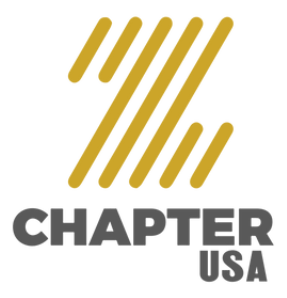Generation Hispanic TV - Live
UK Online Safety Bill Means Tighter Rules
The Palace of Westminster, which houses the Parliament of the United Kingdom. (Jorge Láscar, https://flic.kr/p/PZYa9t; CC BY-SA 2.0, https://creativecommons.org/licenses/by-sa/2.0/)
The end of dark humour. With the new UK Bill dark humour online will face serious policing for reasons credible, but no less diminishing. Tighter rules for online platforms meant tighter rules for participant which the rules targeted on under the awkward terminology of user-to-user services (plainly for user generated contents).
On May 12, one of the hotly anticipated Bill of the online media was published; Online Safety Bill. The bill follows a progression of archives in the beyond couple of years that reported changes in the space of online damages and the guideline of platforms. The Online Safety Bill establishes the UK government aim of taking global regulatory leadership in the internet space.
Since Brussels, whereupon the UK has freed itself from bureaucratic and slow administration, the UK has been trying to demonstrate its “regulatory agility”. With this bill, it intends to make laws where it takes learnings from implementations and observation of the outcome with constant iterations. The bill was recently renamed to “Online Safety Bill” from “Online Harms Bill” which reflect the parliament intention to focus more on safety and the content of the bill mirrors this change.
A new parliamentary report has recently sufficed where more tighter measures were suggested and the issue of accountability on the path senior management executive was mentioned. The committee led by chairman Damian Collins, said:
“The Committee were unanimous in their conclusion that we need to call time on the Wild West online. What’s illegal offline should be regulated online. For too long, big tech has gotten away with being the land of the lawless. A lack of regulation online has left too many people assailable to abuse, fraud, violence and in some cases even loss of life.
“The Committee has set out recommendations to bring more offences clearly within the scope of the Online Safety Bill, give Ofcom the power in law to set minimum safety standards for the services they will regulate, and to take enforcement action against companies if they don’t comply.
“The era of self-regulation for big tech has come to an end. The companies are clearly responsible for services they have designed and profit from, and need to be held to account for the decisions they make.”
The committee broadly welcomes the government’s push to go beyond industry self-regulation by enforcing compliance with a set of rules intended to hold tech giants accountable for the content they spread and monetize — including via a series of codes of practice and with the media regulator, Ofcom, given a new major oversight and enforcement role over Internet content.
Ministers will have two months to respond to the committee’s report.
Tighter Regulations, New Offences
Since May, the Online Safety Bill is the most comprehensive attempt to police the online world and bring tech giants to bigger responsibility. In the first draft, tech giants were obligated with what the bill termed “duty of care” on large social platforms to remove illegal, harmful content and protect children.
But the new committee report has declaimed that as vague responsibility and called for OfCom to establish more explicit standards of offence and punishment. It is advocating for more fines for big tech and better chain of responsibility away from the corporates but deeper into the organization’s acme.
Among the many recommendations made over its 191 pages are:
• An explicit duty for all pornography sites to make sure children cannot access them
• Scams and fraud – such as fake adverts designed to trick users – should be covered
• The bill should cover not just content, but “the potential harmful impact of algorithms”
• It should also be expanded to cover paid-for advertising, such as those involving scams
The report, as published by BBC News, also recommends that a wide range of new criminal offences should be created, based on proposals from the Law Commission, and carried in the bill, including:
• Promoting or “stirring up” violence against women, or based on gender or disability
• Knowingly distributing seriously harmful misinformation
• Content “promoting self-harm” should be made illegal
• “Cyber-flashing” – the sending of unwanted naked images – should be illegal
• So, should deliberately sending flashing images to those with epilepsy, with the goal of causing a seizure
According to Mr. Collins, these changes would “bring more offences clearly within the scope of the Online Safety Bill, give Ofcom the power in law to set minimum safety standards for the services they will regulate, and to take enforcement action against companies if they don’t comply”.
The Menace of Prison Sentence
Among the prominent suggestions is the establishment of the office of “Safety Controller”. The office of “Safety Controller” is an idea that is being championed by the new Digital Secretary, Nadine Dorries. She has warned of potential prison sentence for “safety controller” as they will be made liable for “repeated systemic failings”.
“In that role they would be made liable for a new offence: The failure to comply with their obligations as regulated service providers when there is clear evidence of repeated and systemic failings that result in a significant risk of serious harm to users,” the committee suggests.
While no suggestion is bidding on the government, she has assured lawmakers of a listening and told them she’s “open” to their suggestions that can change the direction of internet world for the better.
“I believe there will be huge, huge changes,” she said.



